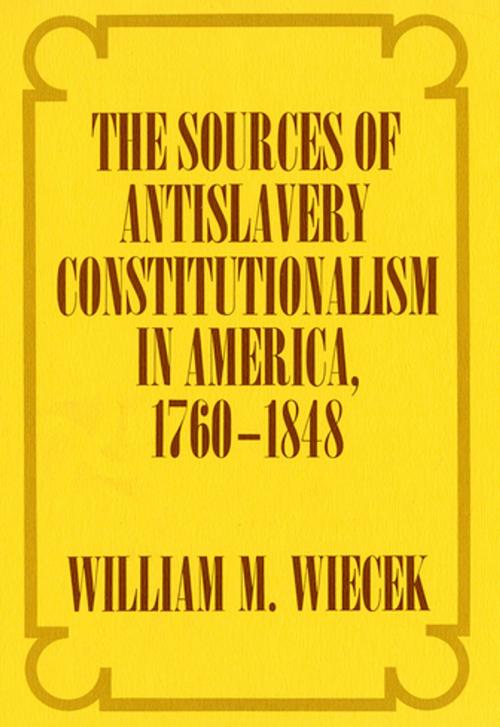The Sources of Anti-Slavery Constitutionalism in America, 1760-1848
Nonfiction, Social & Cultural Studies, Social Science, Discrimination & Race Relations, History, Americas, United States, 19th Century| Author: | William M. Wiecek | ISBN: | 9781501726460 |
| Publisher: | Cornell University Press | Publication: | March 15, 2018 |
| Imprint: | Cornell University Press | Language: | English |
| Author: | William M. Wiecek |
| ISBN: | 9781501726460 |
| Publisher: | Cornell University Press |
| Publication: | March 15, 2018 |
| Imprint: | Cornell University Press |
| Language: | English |
This ambitious book examines the constitutional and legal doctrines of the antislavery movement from the eve of the American Revolution to the Wilmot Proviso and the 1848 national elections. Relating political activity to constitutional thought, William M. Wiecek surveys the antislavery societies, the ideas of their individual members, and the actions of those opposed to slavery and its expansion into the territories. He shows that the idea of constitutionalism has popular origins and was not the exclusive creation of a caste of lawyers. In offering a sophisticated examination of both sides of the argument about slavery, he not only discusses court cases and statutes, but also considers a broad range of "extrajudicial" thought—political speeches and pamphlets, legislative debates and arguments.
This ambitious book examines the constitutional and legal doctrines of the antislavery movement from the eve of the American Revolution to the Wilmot Proviso and the 1848 national elections. Relating political activity to constitutional thought, William M. Wiecek surveys the antislavery societies, the ideas of their individual members, and the actions of those opposed to slavery and its expansion into the territories. He shows that the idea of constitutionalism has popular origins and was not the exclusive creation of a caste of lawyers. In offering a sophisticated examination of both sides of the argument about slavery, he not only discusses court cases and statutes, but also considers a broad range of "extrajudicial" thought—political speeches and pamphlets, legislative debates and arguments.















